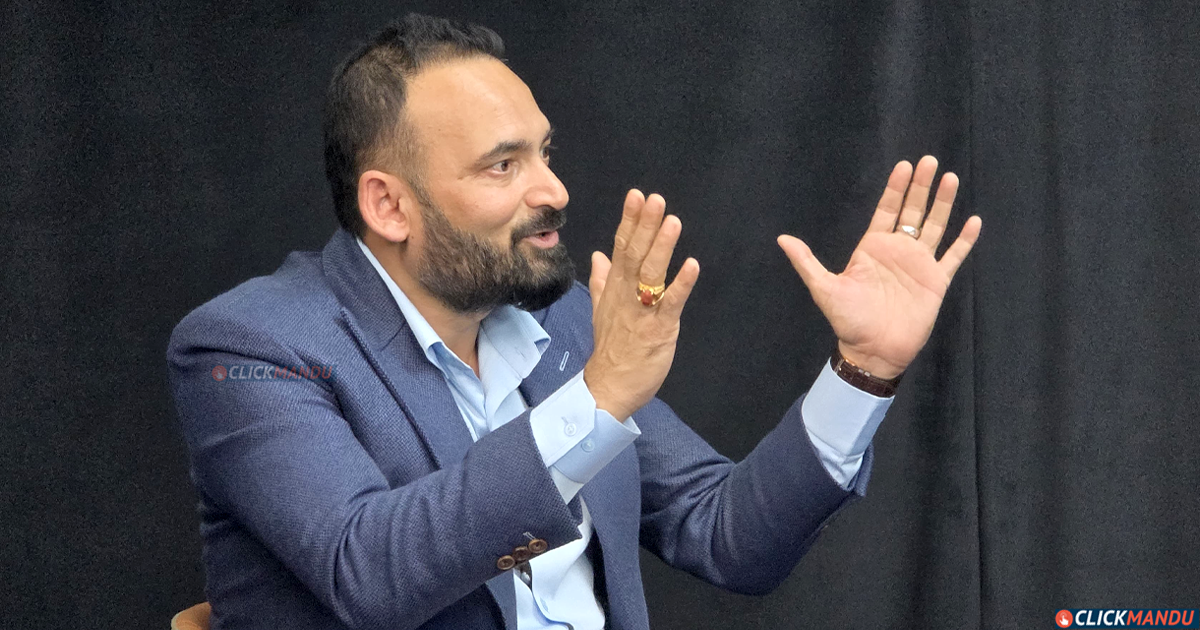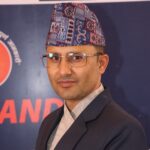Kathmandu: The Director General of Nepal’s Civil Aviation Authority (CAAN), Engineer Pradeep Adhikari, has defended his record as he nears the end of a rare full four-year term in office.
Amid allegations of large-scale corruption in the construction of Pokhara International Airport and Nepal’s ongoing blacklisting by the European Union, Adhikari sat with Raju Baskota, Senior Correspondent at Clickmandu to set the record straight.
Appointed in 2021, Adhikari has overseen major projects, including upgrades at Tribhuvan International Airport and the completion of Bhairahawa and Pokhara international airports. But his leadership has been dogged by political disputes, accusations of irregular promotion, and a parliamentary report alleging Rs 10 billion (US$ 75 million) in corruption at Pokhara airport, where he served as project chief.
The Public Accounts Committee of the parliament claims the airport’s costs ballooned from Rs 15 billion to 22 billion without proper justification. Adhikari dismisses the report as unfounded, saying the budget was formally approved by both the governments of Nepal and China, and no evidence exists of funds being siphoned off.
“If there was corruption, where is the proof? Was money brought from China in sacks?” he asked rhetorically.
He also denies charges that construction mismanagement—including unnecessary hill cutting and the partial demolition of a water tank—was linked to personal collusion with contractors.
Adhikari’s appointment itself was controversial, bypassing six senior officers to promote him directly from the 11th to the top executive grade. He argues that Nepali law allows the government to choose any trusted candidate regardless of seniority.
“The law doesn’t require the DG to be from the 12th level,” he said, brushing off claims that his potential reappointment has blocked others’ promotions.
Nepal’s aviation safety record has improved in recent years, according to Adhikari, with effective implementation scores above the global average. Yet, the EU has kept Nepali carriers on its safety blacklist since 2013. Adhikari says the original safety deficiencies have been resolved and calls the continued ban “an injustice to Nepal’s sovereignty.”
On domestic policy, he has resisted political moves to split CAAN into separate regulatory and operational bodies, arguing the change is unnecessary and potentially destabilizing. Critics claim he has obstructed reform to maintain control, a charge he rejects.
Adhikari has also made headlines for grounding struggling operators like Guna Air and Mustang Helicopters, citing financial instability as a direct threat to flight safety.
“You can’t run an airline like a taxi service,” he said, challenging operators to meet all safety and financial requirements before resuming flights.
As his term ends in January 2026, Adhikari remains a polarizing figure in Nepal’s aviation sector—praised by supporters for infrastructure development and strict regulation, yet criticized by opponents for alleged political maneuvering and unresolved safety and governance concerns.
With the EU ban still in place and corruption allegations lingering, Nepal’s aviation industry faces turbulence both at home and abroad. Whether Adhikari’s tenure will be remembered for progress or controversy may depend on what happens after he leaves office.



Comment Here